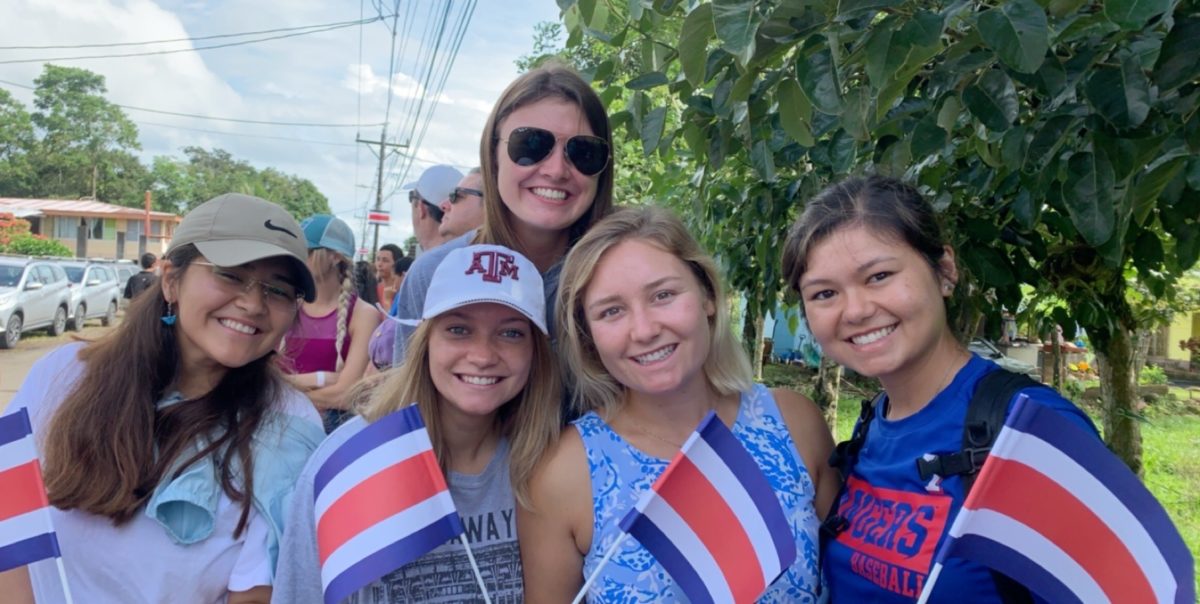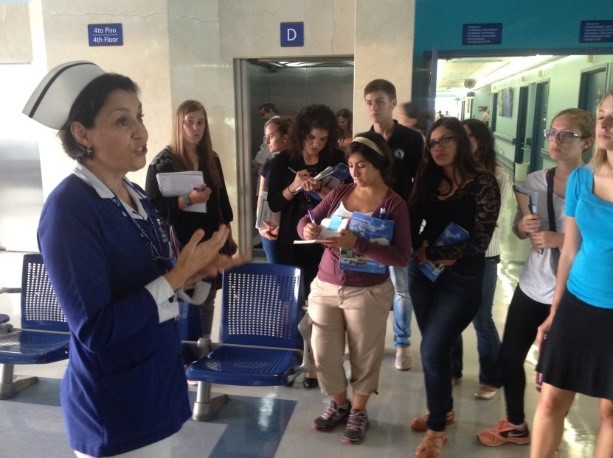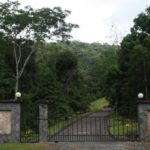Join us in the Fall 2024 semester for a unique educational experience designed to give upper-level pre-medicine, pre-veterinary and other pre-health students the chance to study and travel abroad while keeping up with their rigorous course of study.
THE CRIBS PROGRAM
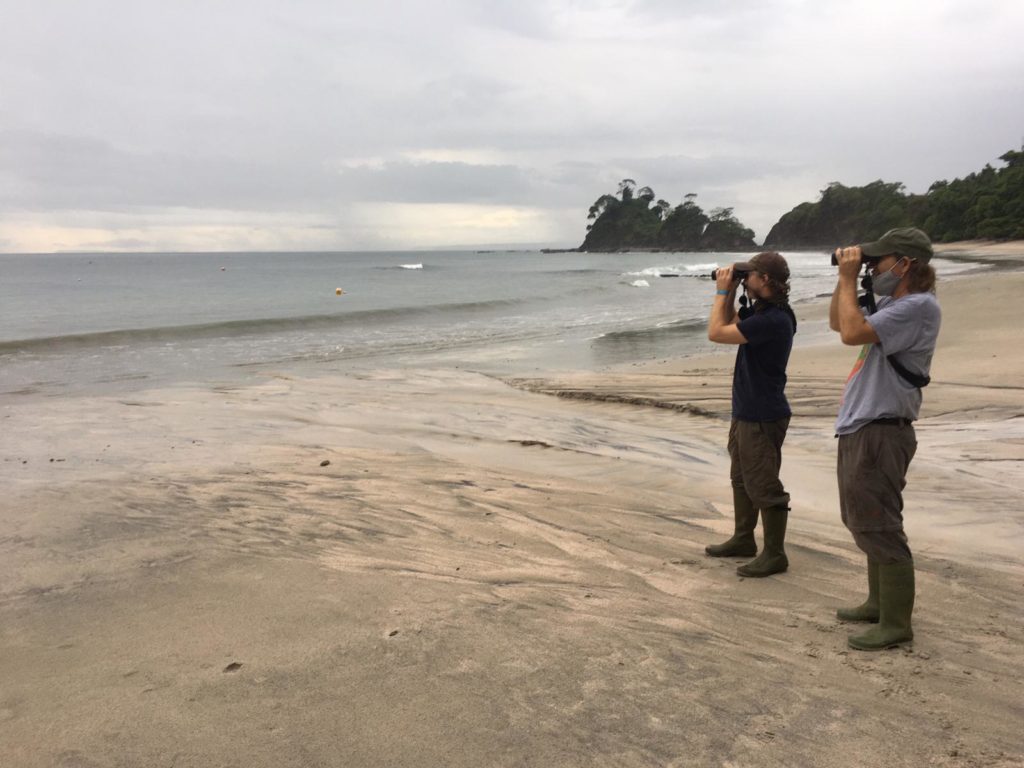
CRIBS students visit Manuel Antonio National park as part of their introduction to Costa Rica’s environment
How would you like to take required “core” courses in a tropical rainforest? Take some key electives and study Spanish while at the beach? Take courses with only 14 other students? Explore volcanoes and jungles with top-flight faculty? If any of this sounds good to you, this program may be right for you.
Students will receive an in-depth introduction to Costa Rican and Latin American health, conservation, culture, and nature, then learn and use Spanish through a combination of classes and homestays. We will study and see first-hand the global impact of emerging zoonotic diseases including COVID-19. Genetics and Microbiology will be taught with a “Latin flavor” to show how these sciences are applicable to Costa Rica and the world outside the classroom. Students will visit a local hospital and learn about the health and diet issues facing Latin America in a post-COVID-19 world, then follow it up with a field trip to national parks and a visit to a sloth rescue center. Wouldn’t you like to have a working knowledge of Spanish and so many new experiences to write about on your next big application?
Dates for Fall 2024 Semester
- Fly to Costa Rica 19 August 2024
- Fly home to USA 02 December 2024
Student Life
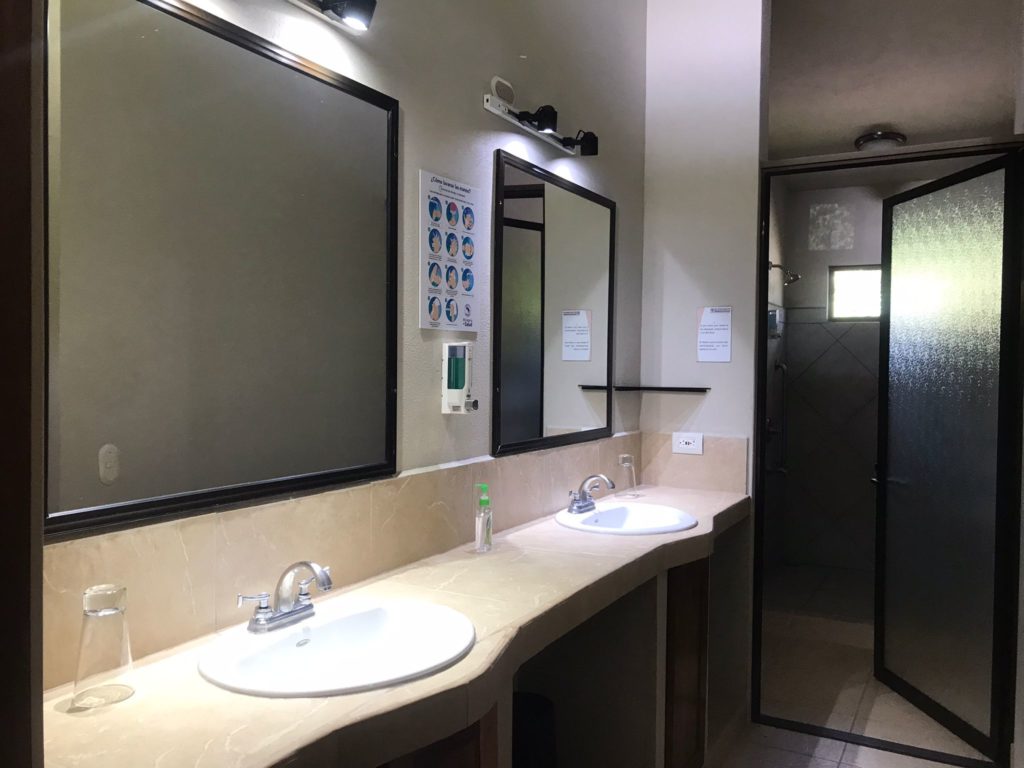
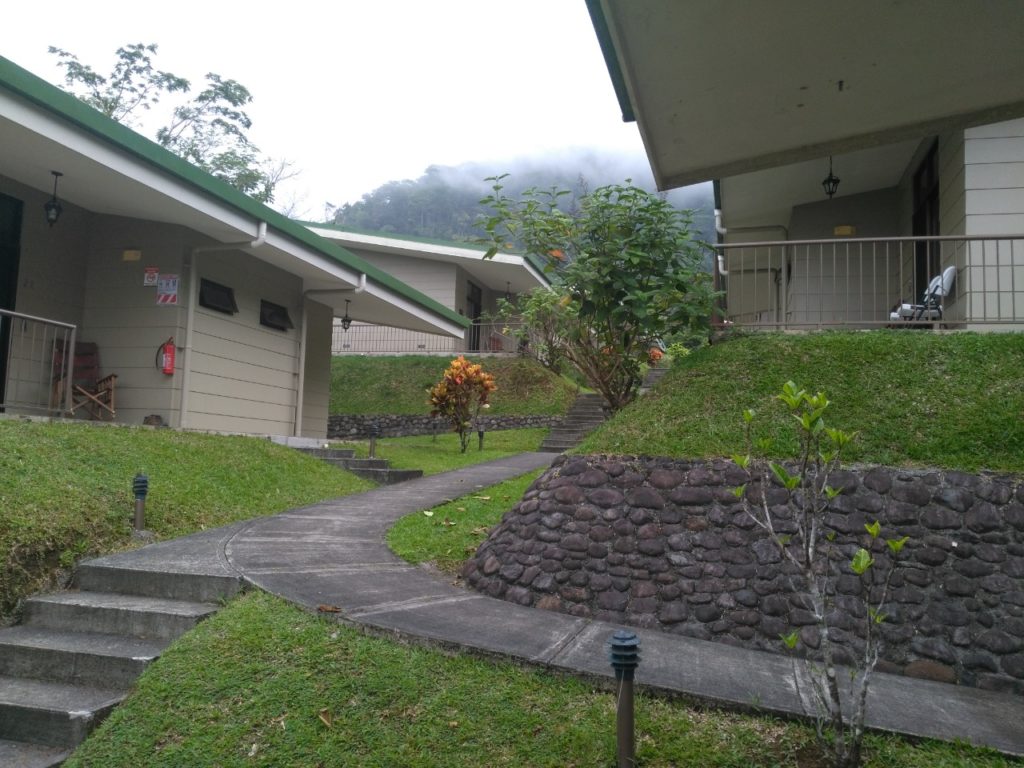
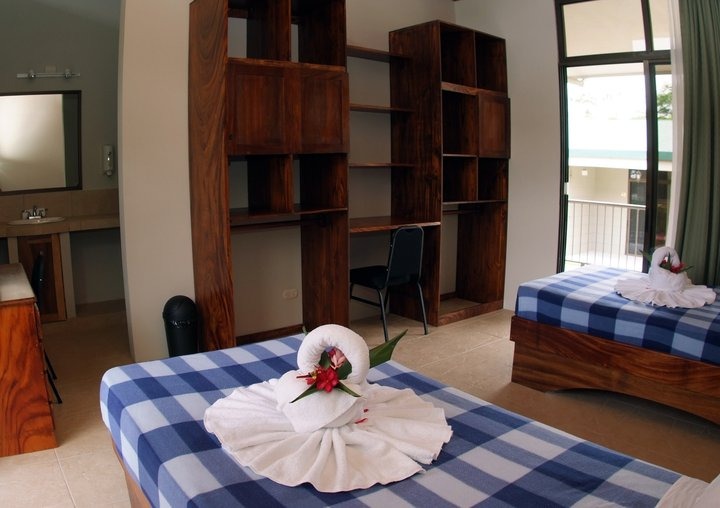
The course will be based at the Soltis Center https://soltiscentercostarica.tamu.edu/About-Us/Welcome where students will eat three cafeteria-style meals a day live in shared dorm accommodations. The program itinerary is created to intersperse intense periods of lectures and exams with multi-day trips and field excursions to ensure that the basic lecture material is covered while still finding time to explore the unique opportunities available in Costa Rica. We will also do a quick trip to Panama to visit the Naso native community and the beaches of Bocas del Toro. Students will learn about Costa Rican culture, daily life, and health care decisions through a series of homestays with families in distinct areas of the country. Throughout the semester the course will be traveling during the weekends and time will be included for relaxation and exploration of beaches, forests, towns, and cities.
The Soltis Center
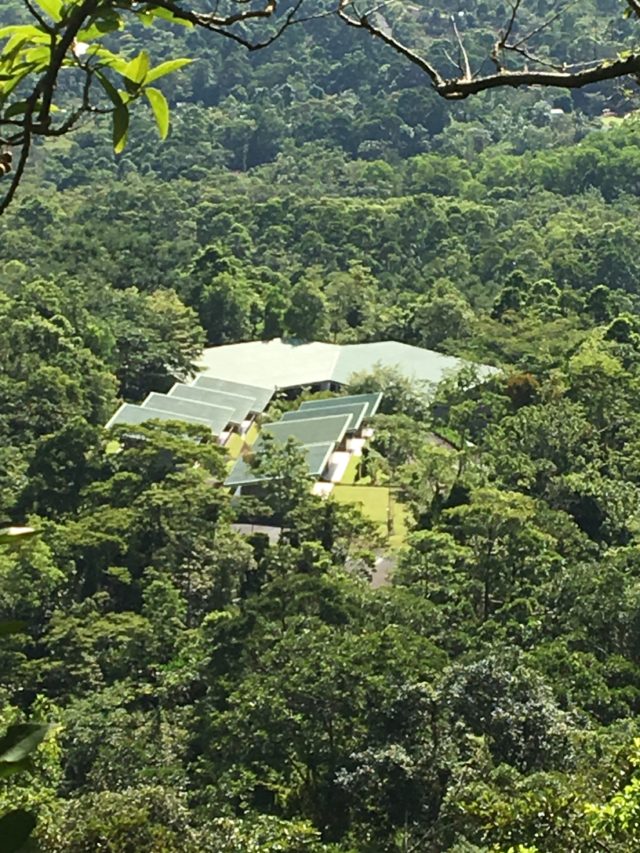
The Soltis Center for Research and Education will become your home for the semester https://soltiscentercostarica.tamu.edu/Academics. Soltis Center is a clean and comfortable Texas A&M-owned and operated facility that opened in 2009. The modern facilities of the center include dorms, a cafeteria and multiple-use area, labs, classrooms, internet access, and a video conference room, all wheelchair accessible, along with more than 250 acres of primary and second-growth tropical rainforest. The buffet-style food is great and the forests host diverse plant, bird, and amphibian communities which provide a wide array of educational and research opportunities. The closest community, San Juan de Peñas Blancas, is just five minutes away from the center, where approximately 50 families form a close-knit community reliant mostly on subsistence farming. The landowners around the center are an eclectic mix of US expatriates and native Costa Ricans who are using their land for sustainable agriculture, forestry, organic farming, cattle grazing, tourism, and other micro-enterprises. The center is about 30 minutes from the popular tourist destinations of La Fortuna, Arenal Volcano, and Arenal Lake.
Picture: Soltis Center view from the top of the canopy tower
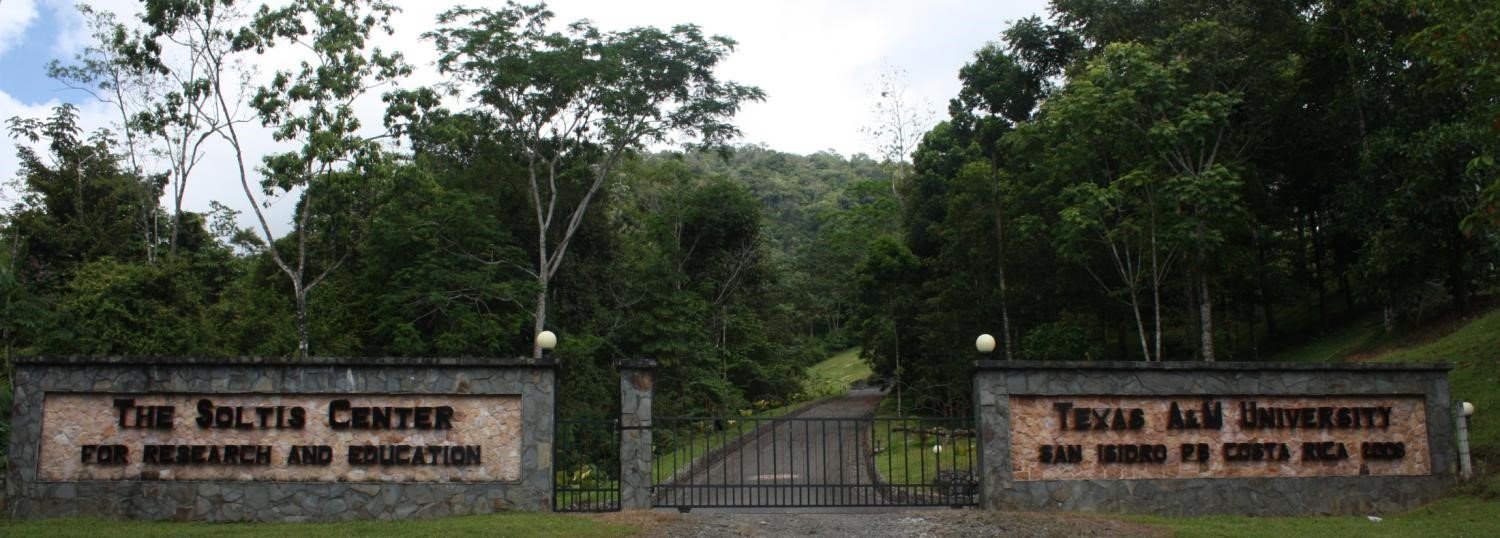
Excursions
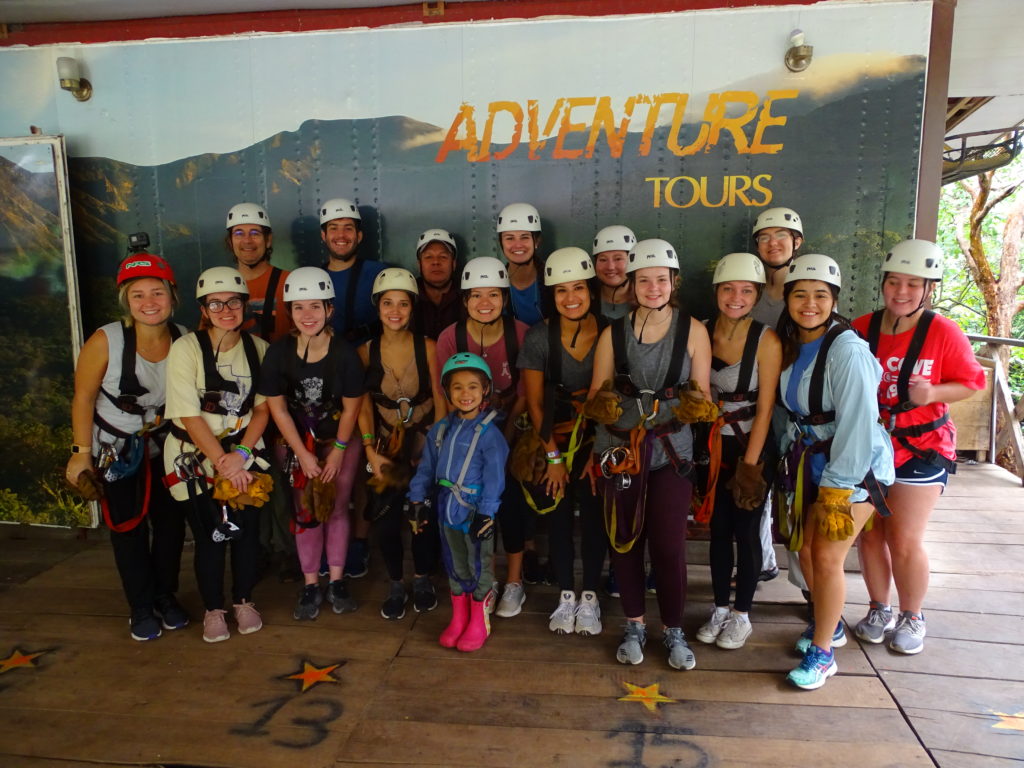
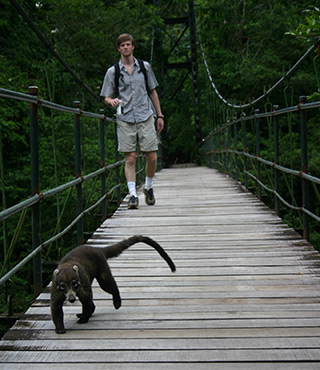
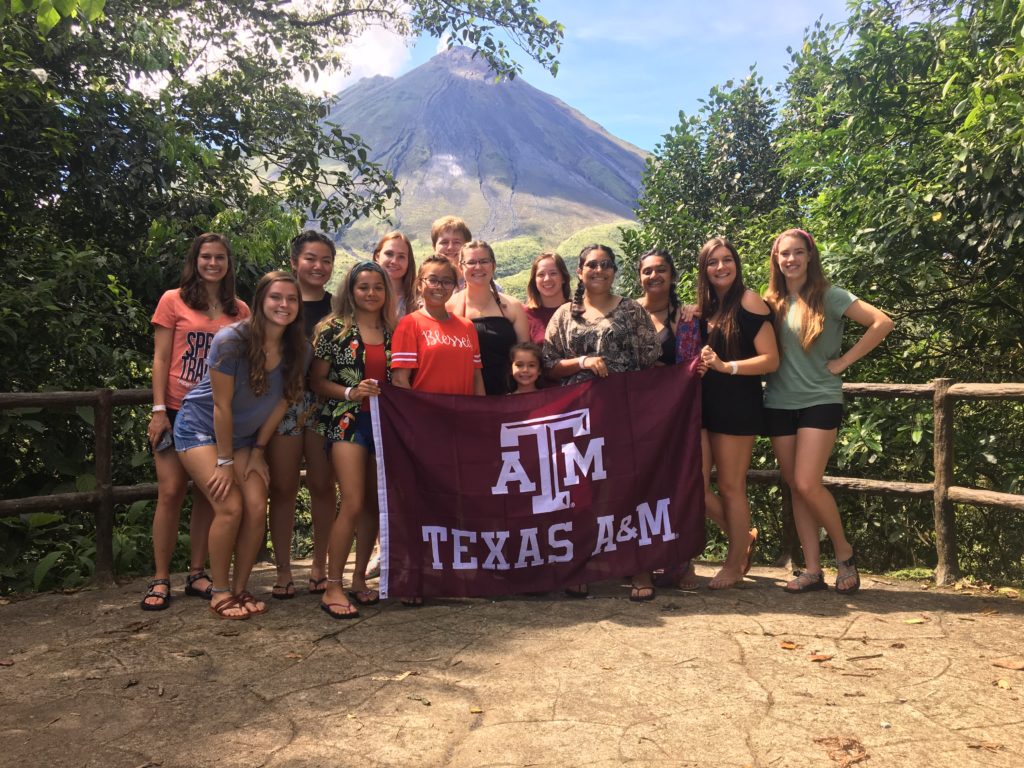
The course will make extensive use of the unique opportunities available in Central America. Most of the course will be held in Costa Rica, where we will visit the full range of sites from small local towns to the bustling capital of San Jose. We will be touring government hospitals and private clinics, staying at an agricultural technical college and visiting a working cattle ranch. We will also have a brief trip to Panama to visit a rustic lodge in the Naso native community and the world famous beaches of Bocas del Toro. This will provide a wonderful contrast to Costa Rica and provide students with a much broader appreciation of Latin America. Field excursions will be closely integrated with the course material and will be an integral part of all courses.
We will also have some purely recreational outings including trips to hot springs, snorkeling, zip lines, and relaxing on a variety of beaches.
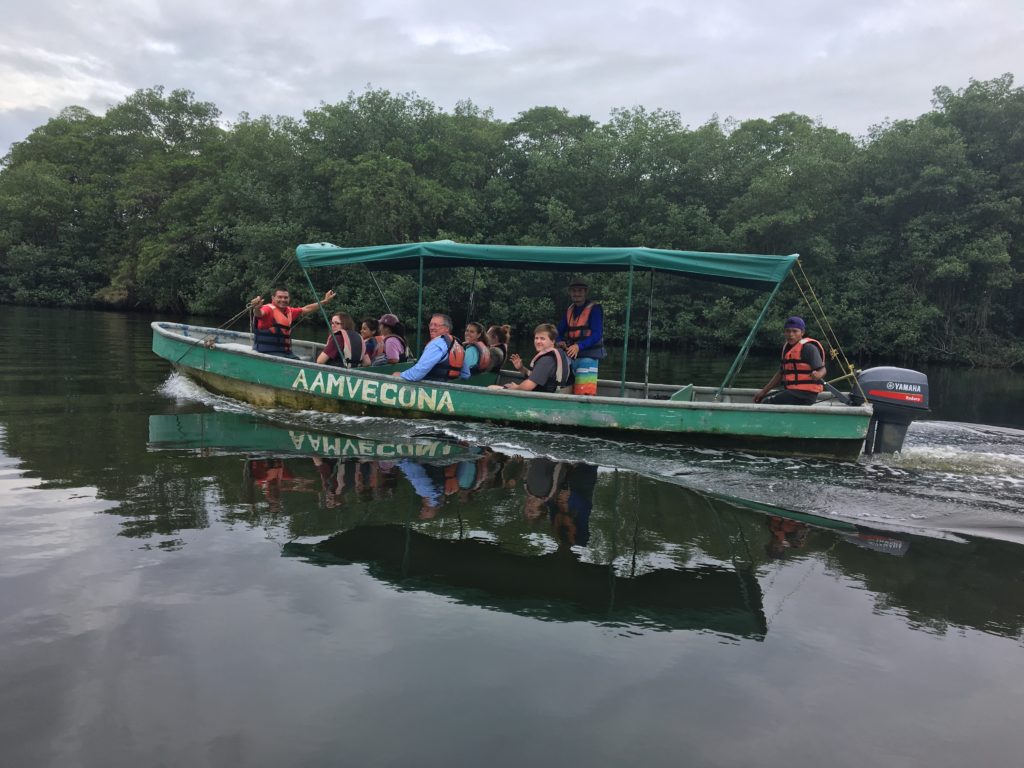
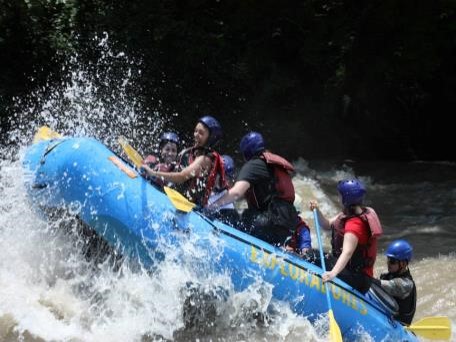
Prerequisites
The course is designed for pre-med, pre-vet, or other pre-health professional students, and students from any major can participate.
- Minimum 2.5 GPA
- 3.0 or better preferred
- Instructor approval
- Junior or Senior Standing (recommended)
Courses

CRIBS students from 2014 in one of the classrooms at The Soltis Center, Costa Rica
VTPB 489: One Health and Ecology in the Tropics. 3 credit hours (ICD course) | Donald Brightsmith
Students will learn to look at landscapes through a “One Health” lens which integrates human, animal, and ecosystem health. We will also explore the richness and beauty of the complex and sometimes bizarre ecosystems of the tropics through trips to national parks, tourist lodges, and conservation projects. By the end of the course will be able to explain how key biological concepts relate to biodiversity conservation and ecosystem health and how these in turn influence human and animal health. Students will also be able to identify key inhabitants of these systems and their roles in ecosystems and disease transmission including birds, amphibians, monkeys, and other mammals. Students will be able to describe the key threats to tropical ecosystems and how these threats can be reduced or eliminated. Students will also monitor local media and report to the class on current events related to human and animal health and the environment in Costa Rica and Latin America. This course is being certified to count for the International and Cultural Diversity certification.
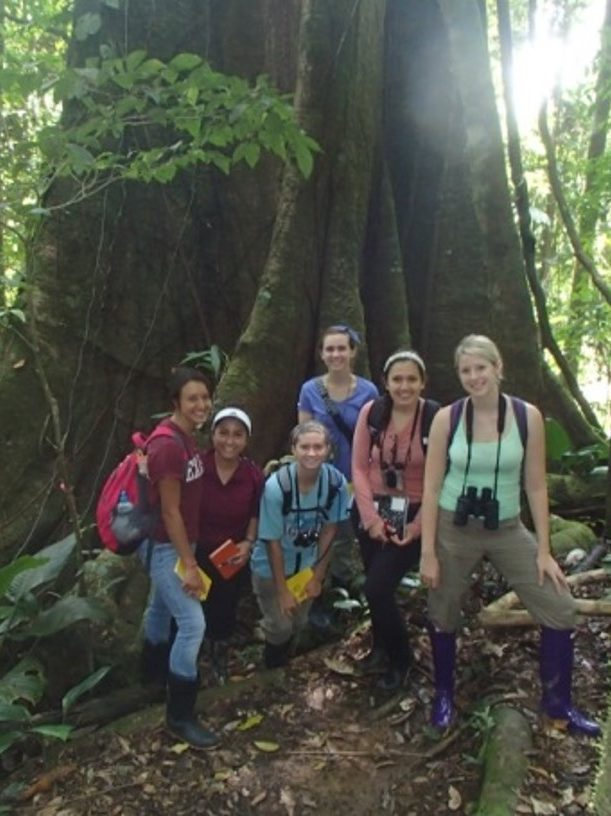
VTPB 405: Biomedical Microbiology. 4 credit hours | Jeffrey Musser
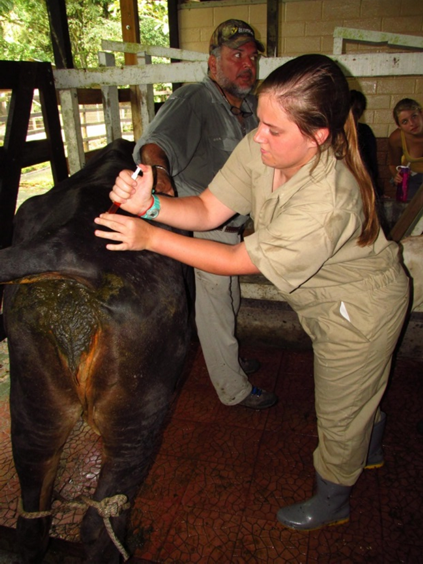
This course will explore the basic fundamentals of bacteriology, mycology, virology, infectious diseases, immunology, biosafety, and the identification of microorganisms. Upon completion of this course, the student will be able to answer questions such as: how are microbes important for health and disease?; what are they and what are their normal environments?; what do they do?; do they differ between Texas and the tropics?; how do environmental changes influence them?; and others. The laboratory portion is designed to provide hands-on experience and to reinforce basic principles of microbiology, while taking advantage of the uniqueness of the Costa Rica environment and the proximity of special industries where microbiology is integral: milk processors, dairies, backyard farms, breweries, citrus plantations, universities, etc. This course is designed to be a rigorous training program in microbiology while being flexible in scope to embrace the special learning environment and natural laboratories offered by the Soltis Center and Costa Rica.
GENE/VTBP 320 Biomedical Genetics. 3 credit hours | James Derr
This course will provide the fundamentals of genetics needed by all pre-health students while taking advantage of examples of human, domestic animal, and wild animal genetics found in our host country. Traditional lectures will be supplemented by projects and discussions to ensure that students see genetics as an integral part of the world around us. By the end of this course, students will be familiar with the basic principles of genetics including gene structure, gene regulation, genetic variation, inheritance mechanisms, genetic disease, epigenetic disease, ethical issues related to genetics, population genetics, and conservation genetics.
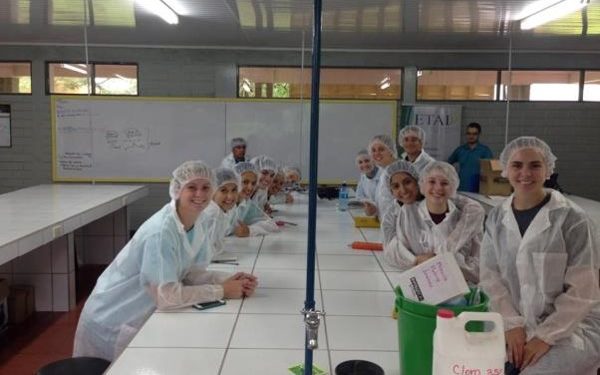
VIBS 310 Biomedical Writing. 1 credit hour, (W course) | Kevin Curley
Our goal is to enhance your understanding of the mechanisms by which knowledge is shared amongst researchers, clinicians, and scientific professionals as well as how science is communicated to the public.
This course is designed to help you:
- Strengthen your general writing skills
- Establish a foundation for continuing to develop your writing skills;
- Increase your ability to do the writing required of biomedical science students, biomedical scientists, and health professionals;
- Learn more about Costa Rica through your reading and writing
These goals will be pursued largely through video lectures, online discussions, and a variety of writing assignments on topics specific to the semester-long research study that you will do in Costa Rica. This course will be taught predominantly online however, Dr. Curley will most likely travel to Costa Rica and work directly with the students mid-semester. This course counts as one writing-intensive course for BIMS students and may count for other majors as well.
VTPB 303 International Medical Communication. 3 credits (C and CD course) | Donald Brightsmith
The goal of this course is to introduce students to Costa Rican culture and cultural communication through experiential learning (field trips, homestays, institutes, clinic tours, independent travel, etc.), readings from the primary and popular literature, and presentations by local people and academics. The course will have frequent reflective discussions about the readings, presentations, and activities to encourage students to explicitly analyze the cultural context in which they are working. The students will keep a reflective journal and will be asked to compare and contrast the Costa Rican culture and health care systems with those of the USA. Faculty and students with experience in other cultures will be encouraged to compare and contrast their experiences in Costa Rica in order to allow students to better understand Latin American culture as a whole. Students will also look at the cultural differences and cultural issues between the native Costa Ricans and the US expatriates living in Costa Rica. Topics such as medical tourism, rural medicine, veterinary care, water quality, and public opinions of conservation will also be investigated. This course fulfills the Cultural Discourse requirement. It is also a Communication Intensive course (C).
Spanish, level depends on your ability. 3 transfer credits available | CPI Spanish Language Institute
Regardless of what your level of the Spanish language is today, from beginner to native speaker, it will be better by the end of this program. All students will participate in a four-week Spanish course that combines 3 – 4 hours a day of formal classes and homestays with local families to ensure that students learn and use the language. Advanced students can study medical Spanish or literature to help take their language skills to the next level. The first week of class is in Monte Verde, a lovely tourism and farming town in the mountains. The second two weeks are in Heredia, a safe and popular suburb just a short bus ride from the center of the Costa Rican capital, San Jose. Afternoons will include cultural activities like cooking, dancing, etc.; educational activities like visits to local health clinics, lectures from local experts, or volunteer work; and of course free time to explore San Jose. More information on CPI Spanish Language Institute can be found at http://www.cpi-edu.com/.
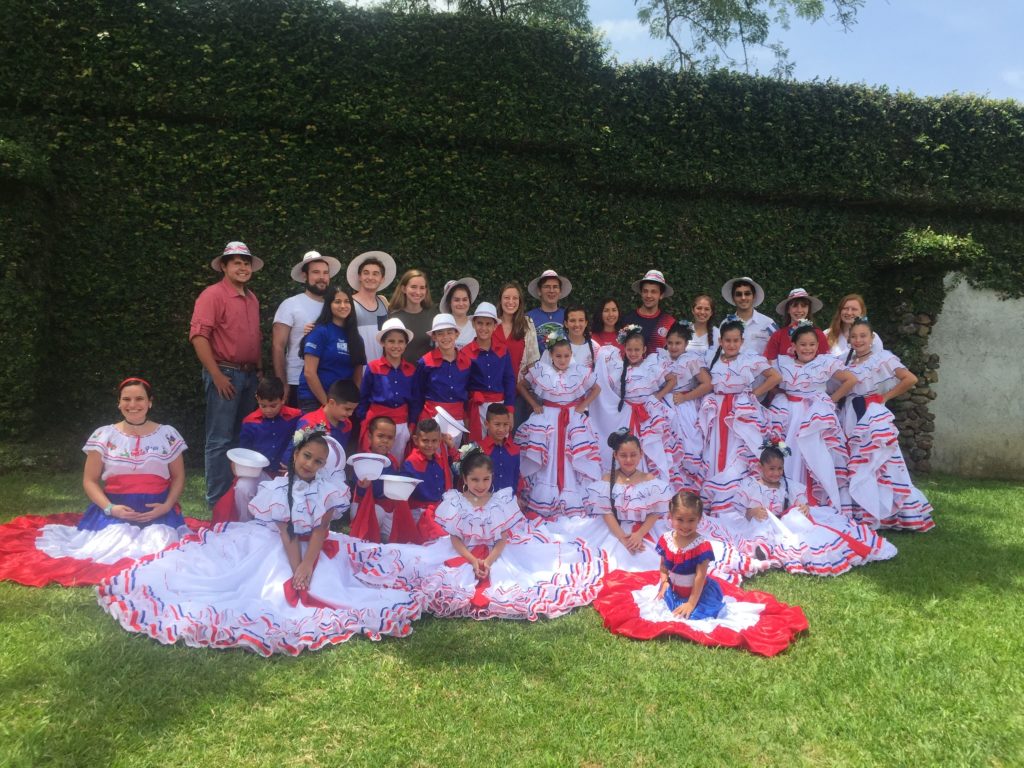
How To Apply
If you are interested in applying for this program, please email Rebekah Bell rbell@tamu.edu at the Education Abroad Office right away so that she puts you on the program mailing list and you get all the updates on the program.
The official online TAMU Study Abroad application for the program IS NOW OPEN
Cost
The following costs are based on schedules from previous semesters and are intended for general guidelines only.
| Estimated Program Fee (subject to change) – billed to university account | $12,900 | |
| Program fee | $12,400 | |
| Confirmation fee | $500 | |
| Additional Expenses – not included in program fee | $7,720 | |
| Undergraduate cost of attendance (COA) (in-state resident for 13 credit hours) | COA | |
| International airfares | $900 | |
| Travel documents (passport) | $160 | |
| Some meals (those not included in program fee) | $1000 | |
| Textbooks and supplies | $100 | |
| Personal spending | Varies | |
| Total estimated cost | approximately $20,620 |
Financial Aid and Scholarships
Additional scholarships specifically for study abroad will be made available starting in Fall 2023.
For more information contact Rebekah Bell rbell@tamu.edu at the Education Abroad Office.
